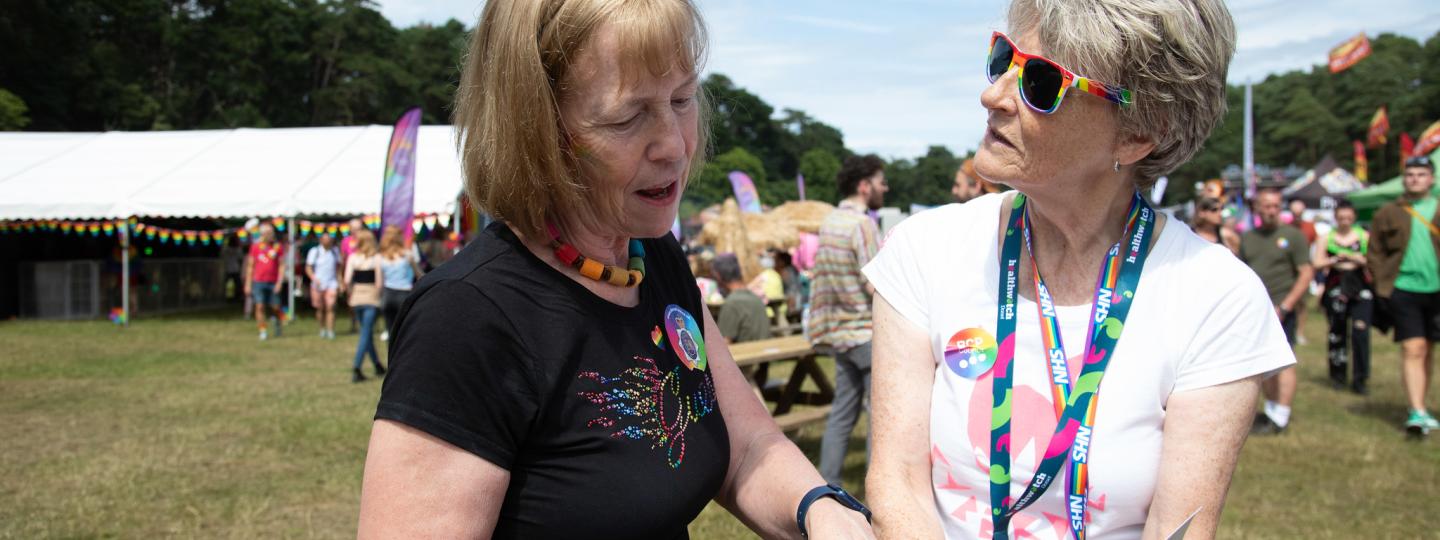Help making a complaint
Check out our top tips and guidance to help you through the process.
Knowing how to make a complaint
Making a complaint can be a daunting task, so knowing who you can complain to and what to do is essential.
We can help you. We've worked with Healthwatch England to produce straightforward advice will guide you through the process from knowing who to talk to, top tips on what to do and what you can expect from services in response.
NHS complaints policy
Every area of England has an independent NHS complaints advocacy service funded by the local authority. They can help you make a complaint about an NHS service or work out what you want to achieve from a complaint.
Patient Advice Liaison Service
Patient Advice Liaison Service (PALS) offers confidential advice, support and information on health matters. It provides a point of contact for patients, families and carers.
PALS do not investigate individual complaints but can give you general advice about the NHS complaints procedure.
Making a complaint about your GP
We believe that the quickest way of resolving a concern is by raising it directly with a member of the practice team, hospital department or relevant provider as soon as you can. For example, please contact your GP's practice manager to raise a complaint about a GP practice or contact Patient Advice and Liaison Service (PALS) at a hospital that you have concerns about.
If you would like to know how to access local health and social care services feel free to contact us.
Telephone: 020 3886 0752
Advocacy for All
Where concerns cannot be resolved informally or the event/concern happened in the previous 12 months, you can make a formal complaint to the service provider.
If you require support for an NHS complaint, as of the 1st April 2023, Advocacy for All will be the single point of contact for all advocacy commissioned by London Borough of Bromley. The service is free, confidential and independent of the NHS. As NHS Complaints Advocates they can support people in many different ways, some of these being to explore the options available to them at each step of the complaints process, help them to write letters to the right people and prepare them for meetings and also attend with them if necessary.
This includes:
- Care Act advocacy – referrals from Local Authority, for reviews, assessments, safeguarding, for people with a difficulty understanding and processing information, and who are unfriended.
- Mental Capacity Act advocacy (IMCA) – referrals from Decision makers for people who are ‘unfriended’ and in relation to serious medical treatment or Change of Accommodation
- Deprivation of Liberty Safeguards – referrals from Local Authority DOLs office.
- Children Advocacy – Looked After Children, referrals from Local Authority Children teams. Children advocacy, self-referrals and referrals on behalf of young people.
- Health Complaints advocacy – open referrals, for people wishing to make a complaint about an NHS funded service.
- Independent Mental health Act advocacy (IMHA) for people under section, self referrals or from practitioners.
- Community mental health advocacy, self- referral and from services, for people receiving mental health services.
Advocacy for All can be contacted on 0345 310 1812

